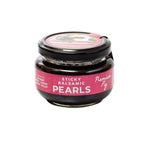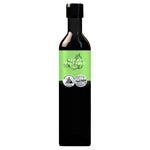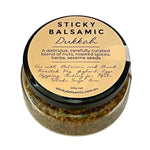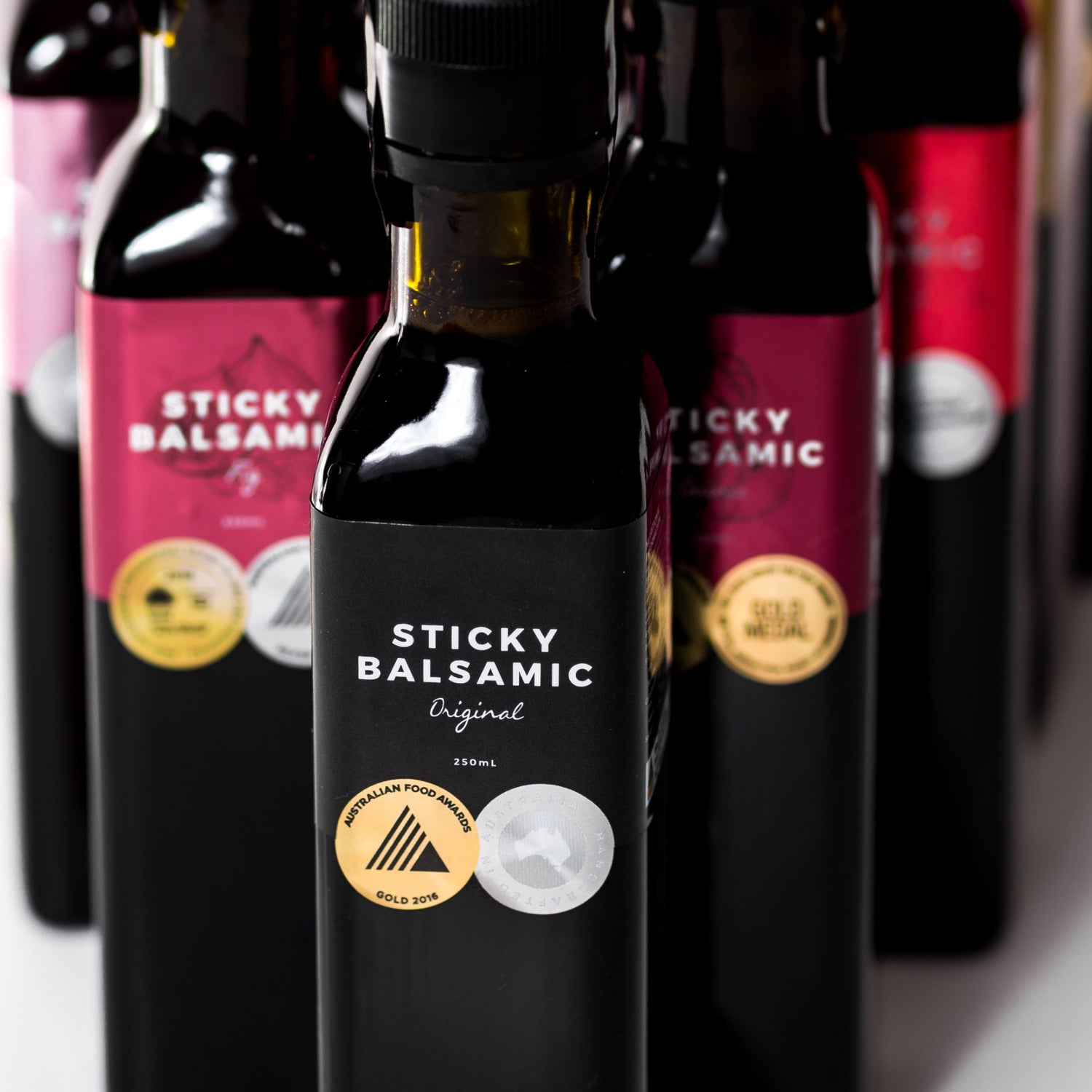Is Balsamic Vinegar Healthy? The Complete Science-Backed Guide to This Superfood Condiment
Is balsamic vinegar healthy enough to earn a place in your wellness routine? When you drizzle that rich, dark balsamic vinegar over your salad or use it to glaze your favorite protein, you're not just adding incredible flavor – you're also incorporating a surprisingly healthy ingredient into your diet. The answer is a resounding yes, and the science behind it might surprise you.
What Makes Balsamic Vinegar a Health Powerhouse?
Is balsamic vinegar healthy in ways that extend beyond taste? Absolutely. Balsamic vinegar, particularly high-quality varieties like Sticky Balsamic's award-winning range, offers numerous health benefits that extend far beyond its culinary applications. This ancient condiment, originating from Italy's Modena region, has been cherished for centuries not only for its complex flavor profile but also for its medicinal properties.
The Nutritional Profile of Healthy Balsamic Vinegar
When asking "is balsamic vinegar healthy," the nutritional profile tells the story. Premium balsamic vinegar is naturally low in calories, with just 5-10 calories per tablespoon, making it an excellent choice for those watching their weight (Budak et al., 2014). It contains no fat, very little sodium, and provides small amounts of potassium, calcium, and phosphorus. More importantly, it's rich in antioxidants, particularly polyphenols, which are responsible for many of its health benefits (Verzelloni et al., 2007).
Key Health Benefits: Why Balsamic Vinegar Is Healthy
1. Blood Sugar Management and Diabetes Support
One of the most significant reasons balsamic vinegar is healthy is its ability to help regulate blood sugar levels. Studies have shown that consuming balsamic vinegar before meals can help slow the absorption of carbohydrates, leading to more stable blood glucose levels (Johnston et al., 2004; Ostman et al., 2005). This makes it particularly beneficial for people with diabetes or those looking to prevent blood sugar spikes.
The acetic acid in balsamic vinegar is the key component responsible for this effect. It works by inhibiting certain enzymes that break down starches and sugars, effectively slowing their absorption into the bloodstream (Ostman et al., 2005).
2. Heart Health and Cholesterol Management
Regular consumption of healthy balsamic vinegar may contribute to better cardiovascular health. The antioxidants present in quality balsamic vinegar help reduce oxidative stress, which is linked to heart disease (Budak et al., 2014). Additionally, some studies suggest that the polyphenols in balsamic vinegar may help lower LDL (bad) cholesterol levels while supporting overall heart health (Kondo et al., 2001; Fushimi et al., 2006).
3. Digestive Health Benefits
Is balsamic vinegar healthy for your digestive system? Yes! Balsamic vinegar contains probiotics, particularly when it's traditionally aged, which can support digestive health. The acetic acid also helps stimulate digestive enzymes, potentially improving nutrient absorption and overall digestive function (Fushimi et al., 2006). This makes it an excellent addition to meals, especially when consuming harder-to-digest foods.
4. Weight Management Support
The low calorie content combined with the ability to enhance flavor makes healthy balsamic vinegar an excellent tool for weight management. It can replace higher-calorie dressings and sauces while still providing satisfying taste. The acetic acid may also help increase feelings of fullness, potentially reducing overall calorie intake (Kondo et al., 2009; Ostman et al., 2005).
Antioxidant Properties: Fighting Free Radicals
The Power of Polyphenols
High-quality healthy balsamic vinegar is rich in polyphenols, powerful antioxidants that help protect your cells from damage caused by free radicals (Verzelloni et al., 2007). These compounds have been linked to reduced inflammation, improved immune function, and potentially lower risk of chronic diseases including cancer and neurodegenerative conditions (Budak et al., 2014).
Anti-Inflammatory Effects
Chronic inflammation is at the root of many health issues, from arthritis to heart disease. The antioxidants in healthy balsamic vinegar help combat inflammation throughout the body, potentially reducing the risk of inflammatory conditions and supporting overall health (Alipour et al., 2014; Verzelloni et al., 2007).
Choosing the Healthiest Balsamic Vinegar
Quality Matters for Health Benefits
Not all balsamic vinegars are created equal when it comes to health benefits. Mass-produced, low-quality versions often contain added preservatives that can negate many of the health benefits. Premium balsamic vinegars, like those from Sticky Balsamic, are made with traditional methods and high-quality ingredients, ensuring maximum health benefits (Verzelloni et al., 2007).
What to Look for in Healthy Balsamic Vinegar
When selecting healthy balsamic vinegar for health benefits, look for:
- No artificial ingredients
- Traditional aging processes
- High-quality grape must as the primary ingredient
- Minimal processing and natural production methods
- Certifications ensuring quality and purity
Incorporating Healthy Balsamic Vinegar into Your Diet
Creative Ways to Add Health Benefits
Beyond traditional salad dressings, there are numerous ways to incorporate healthy balsamic vinegar into your diet:
Marinades and Glazes: Use balsamic vinegar to marinate lean proteins, adding flavor while potentially improving nutrient absorption.
Vegetable Roasting: Drizzle over vegetables before roasting to enhance both flavor and antioxidant content.
Fruit Pairings: Combine with fresh fruits for a healthy dessert that provides antioxidants and natural sweetness.
Beverage Enhancement: Add a splash to sparkling water for a refreshing, healthy drink.
Innovative Applications with Sticky Balsamic Pearls
Modern culinary innovations like Sticky Balsamic Pearls offer new ways to incorporate these health benefits. These molecular gastronomy creations provide concentrated bursts of flavor and nutrients, making it easy to add healthy balsamic vinegar to any dish.
Potential Considerations and Moderation
Acidity and Dental Health
While balsamic vinegar is healthy, its acidity means it should be consumed in moderation. The acid can potentially affect tooth enamel if consumed in large quantities or frequently without proper oral hygiene (Budak et al., 2014).
Portion Control
Like any condiment, healthy balsamic vinegar should be used as part of a balanced diet. While healthy, it's still a concentrated source of flavor and should be used appropriately to complement, not overwhelm, your meals.
The Bottom Line: Is Balsamic Vinegar Healthy?
The evidence clearly shows that high-quality balsamic vinegar is healthy and a beneficial addition to most diets. Its combination of antioxidants, blood sugar management properties, and potential cardiovascular benefits make it more than just a flavorful condiment – it's a functional food that can support your overall health goals (Johnston et al., 2004; Budak et al., 2014; Verzelloni et al., 2007).
When choosing healthy balsamic vinegar for health benefits, invest in quality products that maintain traditional production methods and avoid unnecessary additives. Premium options like Sticky Balsamic's range ensure you're getting maximum health benefits along with exceptional flavor.
By incorporating healthy balsamic vinegar into your regular meal routine, you're not just enhancing taste – you're making a choice that supports your long-term health and wellness. Whether drizzled over salads, used in marinades, or enjoyed in innovative forms like Sticky Balsamic Pearls, this ancient condiment continues to prove its worth as both a culinary treasure and a health-supporting superfood.
* Disclaimer: This is not medical advice. For any concerns or questions, please contact your medical professional*
References
Alipour, B., Homayouni, A., Tabatabaei, S. H., & Alizadeh, M. (2014). Effects of lactobacillus casei supplementation on disease activity and inflammatory cytokines in rheumatoid arthritis patients. International Journal of Food Sciences and Nutrition, 65(8), 947-954.
Budak, N. H., Aykin, E., Seydim, A. C., Greene, A. K., & Guzel‐Seydim, Z. B. (2014). Functional properties of vinegar. Journal of Food Science, 79(5), R757-R764.
Fushimi, T., Suruga, K., Oshima, Y., Fukiharu, M., Tsukamoto, Y., & Goda, T. (2006). Dietary acetic acid reduces serum cholesterol and triacylglycerols in rats fed a cholesterol-rich diet. British Journal of Nutrition, 95(5), 916-924.
Johnston, C. S., Kim, C. M., & Buller, A. J. (2004). Vinegar improves insulin sensitivity to a high-carbohydrate meal in subjects with insulin resistance or type 2 diabetes. Diabetes Care, 27(1), 281-282.
Kondo, S., Tayama, K., Tsukamoto, Y., Ikeda, K., & Yamori, Y. (2001). Antihypertensive effects of acetic acid and vinegar on spontaneously hypertensive rats. Bioscience, Biotechnology, and Biochemistry, 65(12), 2690-2694.
Kondo, T., Kishi, M., Fushimi, T., Ugajin, S., & Kaga, T. (2009). Vinegar intake reduces body weight, body fat mass, and serum triglyceride levels in obese Japanese subjects. Bioscience, Biotechnology, and Biochemistry, 73(8), 1837-1843.
Ostman, E., Granfeldt, Y., Persson, L., & Björck, I. (2005). Vinegar supplementation lowers glucose and insulin responses and increases satiety after a bread meal in healthy subjects. European Journal of Clinical Nutrition, 59(9), 983-988.
Verzelloni, E., Tagliazucchi, D., & Conte, A. (2007). Relationship between the antioxidant properties and the phenolic and flavonoid content in traditional balsamic vinegar. Food Chemistry, 105(2), 564-571.









